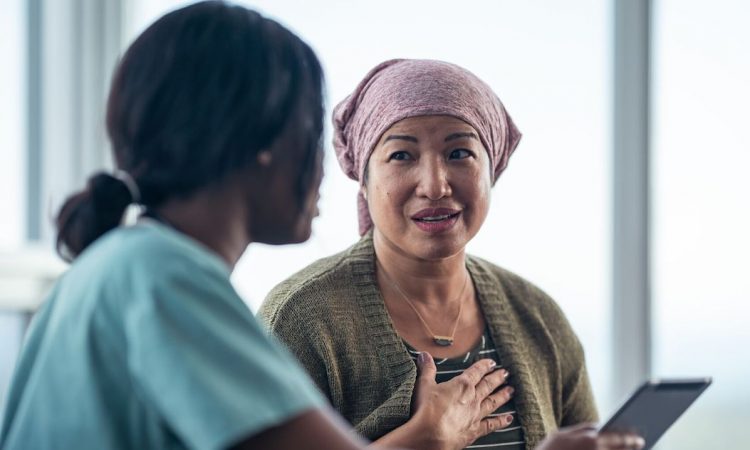Freenome on Tuesday announced the launch of its new Sanderson Study, which will use its multiomics platform, in combination with real-world data, some derived from Oracle Cerner’s Learning Health Network, to improve detection and treatment of several cancers.
WHY IT MATTERS
San Francisco-based Freenome’s multiomics platform can enable earlier detection of cancer using a standard blood draw. The company specializes in advanced computational biology, using machine learning to detect patterns among billions of circulating cell-free biomarkers.
The study will use both traditional and real-world data to generate evidence of clinical validation for certain high- and elevated-risk populations, Freenome says, while also refining the platform’s oncology classification and risk prediction models.
The goal with the Sanderson Study is to build infrastructure that can bridge the gap between clinical research and day-to-day clinical impact, according to Freenome.
The company is developing a wider screening approach for oncology that assesses patients’ individual risk. Freenome’s multiomics platform combines tumor and non-tumor signals with machine learning to detect cancer in its earliest stages.
Freenome’s clinical studies are named for employees’ loved ones who battled cancer; the Sanderson Study honors Tim Sanderson, the father of a Freenome engineer. It will enroll approximately 8,000 patients through Freenome’s clinical study partner network and numerous regional health systems across the United States.
It will focus on cancers with significant unmet needs, such as pancreatic and lung cancer.
Oracle Cerner’s Learning Health Network – which comprises 90 diverse health systems nationwide that contribute de-identified clinical trial data – will be a key partner.
In addition, Elligo Health Research will collaborate with LHN members, the company says, using existing health data to identify and enroll patients significantly faster than traditional recruitment models.
THE LARGER TREND
Cerner first announced its work with Elligo and Freenome on the Sanderson Study this past May. “Our long-term goal is to advance multicancer products into clinical practice to save more lives,” said Freenome co-founder Riley Ennis at the time.
In collaboration with the Duke Clinical Research Institute, Cerner launched the Learning Health Network in 2019 with the goal of automating data collection from multiple sources, including electronic health records.
The aim is to enable clinicians to more easily and efficiently gain health insights and guide care, to give medical researchers faster and easier access to data that can help them innovate new approaches to health.
In October 2021, the company announced the creation of Cerner Enviza, a new operating unit focused on developing new approaches to data management for life sciences research and development of new treatments and therapies.
ON THE RECORD
“Early cancer detection with more convenient screening will expand available treatments with better outcomes for patients,” said Christy Dueck, vice president of Cerner Enviza. “Oracle Cerner is thrilled to be working with Freenome to help expedite the study process, from hospital and health system readiness to patient participation and identification. The Learning Health Network acts as an accelerant by addressing the current challenge of the scarcity in sites in the traditional clinical-trial model by creating an abundance of patients who are already actively engaged in healthcare.”
“We’re incorporating real-world data with a precision health mindset on clinical actionability,” Dr. Lance Baldo, chief medical officer at Freenome, said in a statement. “Our goal is to identify the right patient for the right screening tests at the right time, with clear next steps. We believe this approach will ultimately save more lives.”
Twitter: @MikeMiliardHITN
Email the writer: [email protected]
Healthcare IT News is a HIMSS publication.
Source: Read Full Article
